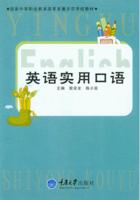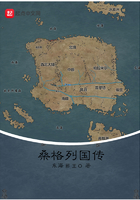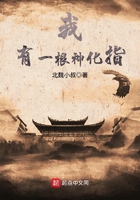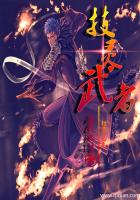NOW THe final copper light of afternoon fades;now the street beyond the low maples and the low signboard is prepared and empty, framed by the study window like a stage。
He can remember how when he was young, after he first came to Jefferson from the seminary, how that fading copper light would seem almost audible, like a dying yellow fall of trumpets dying into an interval of silence and waiting, out of which they would presently come。 Already, even before the falling horns had ceased, it would seem to him that he could hear the beginning thunder not yet louder than a whisper, a rumor, in the air。
but he had never told anyone that。 Not even her。Not even her in the days when they were still the night's lovers, and shame and division had not come and she knew and had not forgot with division and regret and then despair, why he would sit here at this window and wait for nightfall, for the instant of night。Not even to her, to woman。The woman。Woman(not the seminary, as he had once believed):the Passive and Anonymous whom God had created to be not alone the recipient and receptacle of the seed of his body but of his spirit too, which is truth or as near truth as he dare approach。
He was an only child。 When he was born his father was ffty years old, and his mother had been an invalid for almost twenty years。He grew up to believe that this was the result of the food which she had had to subsist on during the last year of the Civil War。Perhaps this was the reason。Hisfather had owned no slaves, though he was the son of a man who did own slaves at the time。 He could have owned them。but though born and bred and dwelling in an age and land where to own slaves was less expensive than not to own them, he would neither eat food grown and cooked by, nor sleep in a bed prepared by, a negro slave。Hence during the war and while he was absent from home, his wife had no garden save what she could make herself or with the infrequent aid of neighbors。And this aid the husband would not allow her to accept for the reason that it could not be repaid in kind。“God will provide,”he said。
“Provide what?Dandelions and ditch weeds?”
“Then He will give us the bowels to digest them。”
He was a minister。 For a year he had been leaving home early each Sunday morning before his father(this was before the son's marriage)who though a member in good standing of the episcopal church had not entered any church since the son could remember, discovered where he went。He found that the son, then just turned twenty-one, was riding sixteen miles each sunday to preach in a small Presbyterian chapel back in the hills。The father laughed。The son listened to the laughter as he would if it had been shouts or curses:with a cold and respectful detachment, saying nothing。The next sunday he went back to his congregation。
When the war began, the son was not among the frst to go。 Neither was he among the last。And he stayed with the troops for four years, though he fred no musket and wore instead of uniform the somber frock coat which he had purchased to be married in and which he had used to preach in。When he returned home in'65 he still wore it, though he never put it on again after that day when the wagon stopped at the front steps and two men lifted him down and carried him into the house and laid him on the bed。His wife removed the coat and put it away in a trunk in the attic。It stayed there for twenty-fve years, until one day his son opened the trunk and took it out and spread out the careful folds in which it had been arranged by hands that were now dead。
He remembers it now, sitting in the dark window in the quiet study, waiting for twilight to cease, for night and the galloping hooves。 The copper light has completely gone now;the world hangs in a greensuspension in color and texture like light through colored glass。 soon it will be time to begin to say Soon now。Now soon“I was eight then,”he thinks。“It was raining。”It seems to him that he can still smell the rain, the moist grieving of the October earth, and the musty yawn as the lid of the trunk went back。Then the garment, the neat folds。He did not know what it was, because at frst he was almost overpowered by the evocation of his dead mother's hands which lingered among the folds。Then it opened, tumbling slowly。To him, the child, it seemed unbelievably huge, as though made for a giant;as though merely from having been worn by one of them, the cloth itself had assumed the properties of those phantoms who loomed heroic and tremendous against a background of thunder and smoke and torn fags which now flled his waking and sleeping life。
The garment was almost unrecognisable with patches。 Patches of leather, mansewn and crude, patches of Confederate grey weathered leafbrown now, and one that stopped his very heart:it was blue, dark blue;the blue of the United States。Looking at this patch, at the mute and anonymous cloth, the boy, the child born into the autumn of his mother's and father's lives, whose organs already required the unfagging care of a swiss watch, would experience a kind of hushed and triumphant terror which left him a little sick。
That evening at supper he would be unable to eat。 Looking up, the father, now a man nearing sixty, would fnd the child staring at him with terror and awe and with something else。Then the man would say,“What have you been into now?”and the child could not answer, could not speak, staring at his father with on his child's face an expression as of the Pit itself。That night in bed he would not be able to sleep。He would lie rigid, not even trembling, in his dark bed while the man who was his father and his only remaining relative, and between whom and himself there was so much of distance in time that not even the decades of years could measure, that there was not even any physical resemblance, slept walls and foors away。
And the next day the child would sufer one of his intestinal fts。But he would not tell what it was, not even to the negro woman who ran the household and who was his mother too and nurse。Gradually his strength would return。And then one day he would steal again to the atticand open the trunk and take out the coat and touch the blue patch with that horrified triumph and sick joy and wonder if his father had killed the man from whose blue coat the patch came, wondering with still more horror yet at the depth and strength of his desire and dread to know。 Yet on the very next day, when he knew that his father had gone to call upon one of his country patients and would not possibly return before dark, he would go to the kitchen and say to the negro woman:“Tell again about grandpa。How many Yankees did he kill?”And when he listened now it was without terror。It was not even triumph:it was pride。
This grandfather was the single thorn in his son's side。 The son would no more have said that than he would have thought it, anymore than it would ever have occurred to either of them to wish mutually that he had been given a diferent son or a diferent father。Their relations were peaceable enough, being on the son's part a cold, humorless, automatically respectful reserve, and on the father's a bluf, direct, coarsely vivid humor which lacked less of purport than wit。They lived amicably enough in the two-storey house in town, though for some time now the son had refused, quiet and firm, to eat any food prepared by the slave woman who had raised him from babyhood。He cooked his own food in the kitchen, to the negress'outraged indignation, and put it on the table himself and ate it face to face with his father, who saluted him punctiliously and unfailingly with a glass of bourbon whiskey:this too the son did not touch and had never tasted。
On the son's wedding day the father surrendered the house。 He was waiting on the porch, with the key to the house in his hand, when the bride and groom arrived。He wore his hat and cloak。About him was piled his personal luggage and behind him stood the two slaves which he owned:the negro woman who cooked, and his“boy,”a man older than himself and who did not have one remaining hair, who was the cook's husband。He was not a planter;he was a lawyer, who had learned law somewhat as his son was to learn medicine,“by main strength and the devil's grace and luck”as he put it。He had already bought for himself a small house two miles in the country, and his surrey and his matched team stood before the porch waiting while he too stood, his hat tiltedback and his legs apart—a hale, bluf, rednosed man with the moustache of a brigand chief—while the son, and the daughter-in-law whom he had never seen before, came up the path from the gate。 When he stooped and saluted her, she smelled whiskey and cigars。“I reckon you'll do,”he said。His eyes were bluf and bold, but kind。“All the sanctimonious cuss wants anyway is somebody that can sing alto out of a Presbyterian hymnbook, where even the good Lord Himself couldn't squeeze in any music。”
He drove away in the tasselled surrey, with his personal belongings about him—his clothes, his demijohn, his slaves。 The slave cook did not even remain to prepare the first meal。she was not offered, and so not refused。The father never entered the house again alive。He would have been welcome。He and the son both knew this, without it ever being said。And the wife—she was one of many children of a genteel couple who had never got ahead and who seemed to fnd in the church some substitute for that which lacked upon the dinnertable—liked him, admired him in a hushed, alarmed, secret way:his swagger, his bluf and simple adherence to a simple code。They would hear of his doings though, of how in the next summer after he removed to the country he invaded a protracted al fresco church revival being held in a nearby grove and turned it into a week of amateur horse racing while to a dwindling congregation gaunt, fanaticfaced country preachers thundered anathema from the rustic pulpit at his oblivious and unregenerate head。His reason for not visiting his son and his daughter-in-law was apparently frank:“You'd fnd me dull and I'd fnd you dull。And who knows?the cuss might corrupt me。Might corrupt me in my old age into heaven。”But that was not the reason。The son knew that it was not, who would have been frst to fght the aspersion were it to come from another:that there was delicacy of behavior and thought in the old man。
The son was an abolitionist almost before the sentiment had become a word to percolate down from the North。 Though when he learned that the Republicans did have a name for it, he completely changed the name of his conviction without abating his principles or behavior one jot。even then, not yet thirty, he was a man of spartan sobriety beyond his years, as the offspring of a not overly particular servant of Chance and thebottle often is。 Perhaps that accounted for the fact that he had no child until after the war, from which he returned a changed man,“deodorised,”as his dead father would have put it, of sanctity somewhat。Although during those four years he had never fred a gun, his service was not alone that of praying and preaching to troops on sunday mornings。When he returned home with his wound and recovered and established himself as a doctor, he was only practising the surgery and the pharmacy which he had practised and learned on the bodies of friend and foe alike while helping the doctors at the front。This probably of all the son's doings the father would have enjoyed the most:that the son had taught himself a profession on the invader and devastator of his country。
“But sanctity is not the word for him,”the son's son in turn thinks, sitting at the dark window while outside the world hangs in that green suspension beyond the faded trumpets。“Grandfather himself would have been the frst to confront any man that employed that term。”It was some throwback to the austere and not dim times not so long passed, when a man in that country had little of himself to waste and little time to do it in, and had to guard and protect that little not only from nature but from man too, by means of a sheer fortitude that did not ofer, in his lifetime anyway, physical ease for reward。 That was where his disapproval of slavery lay, and of his lusty and sacrilegious father。The very fact that he could and did see no paradox in the fact that he took an active part in a partisan war and on the very side whose principles opposed his own, was proof enough that he was two separate and complete people, one of whom dwelled by serene rules in a world where reality did not exist。
but the other part of him, which lived in the actual world, did as well as any and better than most。 He lived by his principles in peace, and when war came he carried them into war and lived by them there;when there was preaching on peaceful sundays in quiet groves to be done, he had done it, without any particular equipment for it other than his will and his convictions and what he could pick up as he went along;when there was the saving of wounded men under fre and the curing of them without proper tools, he did that too, again without other equipment save his strength and courage and what he could pick up as he went along。
And when the war was lost and the other men returned home with their eyes stubbornly reverted toward what they refused to believe was dead, he looked forward and made what he could of defeat by making practical use of that which he had learned in it。 He turned doctor。One of his frst patients was his wife。Possibly he kept her alive。At least, he enabled her to produce life, though he was ffty and she past forty when the son was born。That son grew to manhood among phantoms, and side by side with a ghost。
The phantoms were his father, his mother, and an old negro woman。 The father who had been a minister without a church and a soldier without an enemy, and who in defeat had combined the two and become a doctor, a surgeon。It was as though the very cold and uncompromising conviction which propped him upright, as it were, between puritan and cavalier, had become not defeated and not discouraged, but wiser。As though it had seen in the smoke of cannon as in a vision that the layingon of hands meant literally that。As if he came suddenly to believe that Christ had meant that him whose spirit alone required healing, was not worth the having, the saving。That was one phantom。The second was the mother whom he remembers frst and last as a thin face and tremendous eyes and a spread of dark hair on a pillow, with blue, still, almost skeleton hands。
If on the day of her death he had been told that he had ever seen her otherwise than in bed, he would not have believed it。Later he remembered diferently:he did remember her moving about the house, attending to household afairs。But at eight and nine and ten he thought of her as without legs, feet;as being only that thin face and the two eyes which seemed daily to grow bigger and bigger, as though about to embrace all seeing, all life, with one last terrible glare of frustration and sufering and foreknowledge, and that when that fnally happened, he would hear it:it would be a sound, like a cry。Already, before she died, he could feel them through all walls。They were the house:he dwelled within them, within their dark and allembracing and patient aftermath of physical betrayal。He and she both lived in them like two small, weak beasts in a den, a cavern, into which now and then the father entered—that man who was a stranger to them both, a foreigner, almost a threat:so quicklydoes the body's wellbeing alter and change the spirit。 He was more than a stranger:he was an enemy。He smelled diferently from them。He spoke with a diferent voice, almost in diferent words, as though he dwelled by ordinary among diferent surroundings and in a diferent world;crouching beside the bed the child could feel the man fll the room with rude health and unconscious contempt, he too as helpless and frustrated as they。
The third phantom was the negro woman, the slave, who had ridden away in the surrey that morning when the son and his bride came home。 She rode away a slave;she returned in'66 still a slave, on foot now—a huge woman, with a face both irascible and calm:the mask of a black tragedy between scenes。After her master's death and until she was convinced at last that she would never more see either him or her husband—the‘boy,'who had followed the master to the war and who also did not return—she refused to leave the house in the country to which her master had moved and of which he had left in her charge when he rode away。After the father's death the son went out, to close the house and remove his father's private possessions, and he offered to make provision for her。she refused。she also refused to leave。she made her own small kitchen garden and she lived there, alone, waiting for her husband to return, the rumor of whose death she refused to believe。It was just rumor, vague:how, following his master’s death in Van dorn’s cavalry raid to destroy Grant’s stores in Jeferson, the negro had been inconsolable。One night he disappeared from the bivouac。
Presently there began to come back tales of a crazy negro who had been halted by Confederate pickets close to the enemy’s front, who told the same garbled story about a missing master who was being held for ransom by the Yankees。They could not make him even entertain for a moment the idea that the master might be dead。“No, suh,”he would say。“Not Marse Gail。Not him。Dey wouldn’t dare to kill a Hightower。dey wouldn’t dare。dey got’im hid somewhar, tryin’to sweat outen him whar me and him hid Mistis’coffee pot and de gole waiter。Dat’s all dey wants。”Each time he would escape。Then one day word came back from the Federal lines of a negro who had attacked a Yankee ofcer with a shovel, forcing the ofcer to shoot him to protect his own life。
The woman would not believe this for a long time。“Not dat he ain'tfool enough to done it,”she said。“He jest ain't got ernough sense to know a Yankee to hit at wid a shovel if he wuz to see um。”She said that for over a year。 Then one day she appeared at the son's home, the house which she had quitted ten years ago and had not entered since, carrying her possessions in a handkerchief。she walked into the house and said:“Here I is。You got ernough wood in de box ter cook supper wid?”
“You're free, now,”the son told her。
“Free?”she said。 She spoke with still and brooding scorn。“Free?Whut's freedom done except git Marse Gail killed and made a bigger fool outen Pawmp den even de Lawd Hisself could do?Free?Don't talk ter me erbout freedom。”
This was the third phantom。 With this phantom the child(“and he little better than a phantom too, then,”that same child now thinks beside the fading window)talked about the ghost。They never tired:the child with rapt, wide, half dread and half delight, and the old woman with musing and savage sorrow and pride。but this to the child was just peaceful shuddering of delight。He found no terror in the knowledge that his grandfather on the contrary had killed men“by the hundreds”as he was told and believed, or in the fact that the negro Pomp had been trying to kill a man when he died。No horror here because they were just ghosts, never seen in the flesh, heroic, simple, warm;while the father which he knew and feared was a phantom which would never die。“so it's no wonder,”he thinks,“that I skipped a generation。It's no wonder that I had no father and that I had already died one night twenty years before I saw light。And that my only salvation must be to return to the place to die where my life had already ceased before it began。”
While at the seminary, after he frst came there, he often thought how he would tell them, the elders, the high and sanctified men who were the destiny of the church to which he had willingly surrendered。 How he would go to them and say,“Listen。God must call me to Jefferson because my life died there, was shot from the saddle of a galloping horse in a Jefferson street one night twenty years before it was ever born。”He thought that he could say that, at frst。He believed that they would comprehend。He went there, chose that as his vocation, with that as hispurpose。 but he believed in more than that。He had believed in the church too, in all that it ramifed and evoked。He believed with a calm joy that if ever there was shelter, it would be the Church;that if ever truth could walk naked and without shame or fear, it would be in the seminary。When he believed that he had heard the call it seemed to him that he could see his future, his life, intact and on all sides complete and inviolable, like a classic and serene vase, where the spirit could be born anew sheltered from the harsh gale of living and die so, peacefully, with only the far sound of the circumvented wind, with scarce even a handful of rotting dust to be disposed of。That was what the word seminary meant:quiet and safe walls within which the hampered and garmentworried spirit could learn anew serenity to contemplate without horror or alarm its own nakedness。
“But there are more things in heaven and earth too than truth,”he thinks, paraphrases, quietly, not quizzical, not humorous;not unquizzical and not humorless too。 sitting in the failing dusk, his head in its white bandage looming bigger and more ghostly than ever, he thinks,“More things indeed,”thinking how ingenuity was apparently given man in order that he may supply himself in crises with shapes and sounds with which to guard himself from truth。He had at least one thing to not repent:that he had not made the mistake of telling the elders what he had planned to say。He had not needed to live in the seminary a year before he learned better than that。And more, worse:that with the learning of it, instead of losing something he had gained, had escaped from something。And that that gain had colored the very face and shape of love。
she was the daughter of one of the ministers, the teachers, in the college。 Like himself, she was an only child。He believed at once that she was beautiful, because he had heard of her before he ever saw her and when he did see her he did not see her at all because of the face which he had already created in his mind。He did not believe that she could have lived there all her life and not be beautiful。He did not see the face itself for three years。by that time there had already been for two years a hollow tree in which they left notes for one another。If he believed about that at all, he believed that the idea had sprung spontaneously between them, regardless of whichever one thought of it, said it, frst。But in reality hehad got the idea not from her or from himself, but from a book。 but he did not see her face at all。Ha did not see a small oval narrowing too sharply to chin and passionate with discontent(she was a year or two or three older than he was, and he did not know it, was never to know it)。He did not see that for three years her eyes had watched him with almost desperate calculation, like those of a harassed gambler。
Then one night he saw her, looked at her。 she spoke suddenly and savagely of marriage。It was without preamble or warning。It had never been mentioned between them。He had not even ever thought of it, thought the word。He had accepted it because most of the faculty were married。But to him it was not men and women in sanctifed and living physical intimacy, but a dead state carried over into and existing still among the living like two shadows chained together with the shadow of a chain。He was used to that;he had grown up with a ghost。Then one evening she talked suddenly, savagely。When he found out at last what she meant by escape from her present life, he felt no surprise。He was too innocent。“Escape?”he said。“Escape from what?”
“This!”she said。 He saw her face for the frst time as a living face, as a mask before desire and hatred:wrung, blind, headlong with passion。Not stupid:just blind, reckless, desperate。“All of it!All!All!”
He was not surprised。 He believed at once that she was right, and that he just had not known better。He believed at once that his own belief about the seminary had been wrong all the while。Not seriously wrong, but false, incorrect。Perhaps he had already begun to doubt himself, without knowing it until now。Perhaps that was why he had not yet told them why he must go to Jeferson。He had told her, a year ago, why he wanted to, must, go there, and that he intended to tell them the reason, she watching him with those eyes which he had not yet seen。“You mean,”he said,“that they would not send me?arrange for me to go?That that would not be reason enough?”
“Certainly it wouldn't,”she said。
“But why?That's the truth。 Foolish, maybe。But true。And what is the church for, if not to help those who are foolish but who want truth?Why wouldn't they let me go?”
“Why, I wouldn't let you go myself, if I were them and you gave me that as your reason。”
“Oh,”he said。“I see。”But he did not see, exactly, though。 he believed that he could have been wrong and that she was right。And so when a year later she talked to him suddenly of marriage and escape in the same words, he was not surprised, not hurt。He just thought quietly,“so this is love。I see。I was wrong about it too,”thinking as he had thought before and would think again and as every other man has thought:how false the most profound book turns out to be when applied to life。
He changed completely。 They planned to be married。He knew now that he had seen all the while that desperate calculation in her eyes。“Perhaps they were right in putting love into books,”he thought quietly。“Perhaps it could not live anywhere else。”The desperation was still in them, but now that there were defnite plans, a day set, it was quieter, mostly calculation。They talked now of his ordination, of how he could get Jeferson as his call。“We'd better go to work right away,”she said。He told her that he had been working for that since he was four years old;perhaps he was being humorous, whimsical。she brushed it aside with that passionate and leashed humorlessness, almost inattention, talking as though to herself of men, names, to see, to grovel to or threaten, outlining to him a campaign of abasement and plotting。He listened。even the faint smile, whimsical, quizzical, perhaps of despair, did not leave his face。He said,“Yes。Yes。I see。I understand,”as she talked。It was as if he were saying Yes。I see。I see now。That's how they do such, gain such。That's the rule。
I see nowAt first, when the demagoguery, the abasement, the small lying had its reverberation in other small lies and ultimate threats in the form of requests and suggestions among the hierarchate of the Church and he received the call to Jeferson, he forgot how he had got it for the time。 He did not remember until after he was settled in Jeferson;certainly not while the train of the journey's last stage fed toward the consummation of his life across a land similar to that where he had been born。but it looked diferent, though he knew that the diference lay not outside but inside the car window against which his face was almost pressed like that of a child, while his wife beside him had also now something of eagernessin her face, beside hunger and desperation。 They had been married now not quite six months。They had married directly after his graduation。Not once since then had he seen the desperation naked in her face。but neither had he seen passion again。
And again he thought quietly, without much surprise and perhaps without hurt:I see。That's the way it is。Marriage。Yes。I see nowThe train rushed on。 Leaning to the window, watching the fleeing countryside, he talked in the bright, happy voice of a child:“I could have come to Jeferson before, at almost any time。But I didn't。I could have come at any time。There is a diference, you know, between civilian and military casualness。Military casualness?Ah, it was the casualness of desperation。A handful of men(he was not an officer:I think that was the only point on which father and old Cinthy were ever in accord:that grandfather wore no sword, galloped with no sword waving in front of the rest of them)performing with the grim levity of schoolboys a prank so foolhardy that the troops who had opposed them for four years did not believe that even they would have attempted it。
Riding for a hundred miles through a country where every grove and hamlet had its Yankee bivouac, and into a garrisoned town—I know the very street that they rode into town upon and then out again。I have never seen it, but I know exactly how it will look。I know exactly how the house that we will someday own and live in upon the street will look。It won't be at frst, for a while。We will have to live in the parsonage at frst。But soon, as soon as we can, where we can look out the window and see the street, maybe even the hoofmarks or their shapes in the air, because the same air will be there even if the dust, the mud, is gone—Hungry, gaunt, yelling, setting fre to the store depots of a whole carefully planned campaign and riding out again。No looting at all:no stopping for even shoes, tobacco。I tell you, they were not men after spoils and glory;they were boys riding the sheer tremendous tidal wave of desperate living。boys。because this。This is beautiful。Listen。
Try to see it。Here is that fne shape of eternal youth and virginal desire which makes heroes。That makes the doings of heroes border so close upon the unbelievable that it is no wonder that their doings must emerge now and then like gunfashes in the smoke, and thattheir very physical passing becomes rumor with a thousand faces before breath is out of them, lest paradoxical truth outrage itself。 Now this is what Cinthy told me。And I believe。I know。It's too fne to doubt。It's too fne, too simple, ever to have been invented by white thinking。A negro might have invented it。And if Cinthy did, I still believe。because even fact cannot stand with it。I don't know whether grandfather's squadron were lost or not。I don't think so。
I think that they did it deliberately, as boys who had set fire to an enemy’s barn, without taking so much as a shingle or a door hasp, might pause in fight to steal a few apples from a neighbor, a friend。Mind you, they were hungry。They had been hungry for three years。Perhaps they were used to that。Anyway, they had just set fre to tons of food and clothing and tobacco and liquors, taking nothing though there had not been issued any order against looting, and they turn now, with all that for background, backdrop:the consternation, the confagration;the sky itself must have been on fre。You can see it, hear it:the shouts, the shots, the shouting of triumph and terror, the drumming hooves, the trees uprearing against that red glare as though fxed too in terror, the sharp gables of houses like the jagged edge of the exploding and ultimate earth。Now it is a close place:you can feel, hear in the darkness horses pulled short up, plunging;clashes of arms;whispers overloud, hard breathing, the voices still triumphant;behind them the rest of the troops galloping past toward the rallying bugles。That you must hear, feel:then you see。You see before the crash, in the abrupt red glare the horses with wide eyes and nostrils in tossing heads, sweatstained;the gleam of metal, the white gaunt faces of living scarecrows who have not eaten all they wanted at one time since they could remember;perhaps some of them had already dismounted, perhaps one or two had already entered the henhouse。All this you see before the crash of the shotgun comes:then blackness again。
It was just the one shot。‘And of course he would be right in de way of hit,’Cinthy said。‘stealin’chickens。A man growed, wid a married son, gone to a war whar his business was killin’Yankees, killed in somebody else’s henhouse wid a han’ful of feathers。”Stealing chickens。His voice was high, childlike, exalted。Already his wife was clutching his arm:Shhhhhhh!Shhhhhhhhh!People are looking at you!but he did not seemto hear her at all。 His thin, sick face, his eyes, seemed to exude a kind of glow。“That was it。They didn't know who fred the shot。They never did know。They didn't try to fnd out。It may have been a woman, likely enough the wife of a Confederate soldier。I like to think so。It's fne so。Any soldier can be killed by the enemy in the heat of battle, by a weapon approved by the arbiters and rulemakers of warfare。Or by a woman in a bedroom。but not with a shotgun, a fowling piece, in a henhouse。And so is it any wonder that this world is peopled principally by the dead?Surely, when God looks about at their successors, He cannot be loath to share His own with us。”
“Hush!Shhhhhhhhh!They are looking at us!”
Then the train was slowing into the town;the dingy purlieus slid vanishing past the window。 He still looked out—a thin, vaguely untidy man with still upon him something yet of the undimmed glow of his calling, his vocation—quietly surrounding and enclosing and guarding his urgent heart, thinking quietly how surely heaven must have something of the color and shape of whatever village or hill or cottage of which the believer says, This is my own。The train stopped:the slow aisle, still interrupted with, outlooking, then the descent among faces grave, decorous, and judicial:the voices, the murmurs, the broken phrases kindly yet still reserved of judgment, not yet giving and(let us say it)prejudicial。“I admitted that”he thinks。“I believe that I accepted it。But perhaps that was all I did do, God forgive me。”The earth has almost faded from sight。It is almost night now。His bandagedistorted head has no depth, no solidity;immobile, it seems to hang suspended above the twin pale blobs which are his hands lying upon the ledge of the open window。He leans forward。Already he can feel the two instants about to touch:the one which is the sum of his life, which renews itself between each dark and dusk, and the suspended instant out of which the soon will presently begin。When he was younger, when his net was still too fne for waiting, at this moment he would sometimes trick himself and believe that he heard them before he knew that it was time。
“Perhaps that is all I ever did, have ever done,”he thinks, thinking of the faces:the faces of old men naturally dubious of his youth and jealousof the church which they were putting into his hands almost as a father surrenders a bride:the faces of old men lined by that sheer accumulation of frustration and doubt which is so often the other side of the picture of hale and respected full years—the side, by the way, which the subject and proprietor of the picture has to look at, cannot escape looking at。“They did their part;they played by the rules,”he thinks。“
I was the one who failed, who infringed。 Perhaps that is the greatest social sin of all;ay, perhaps moral sin。Thinking goes quietly, tranquilly, flowing on, falling into shapes quiet, not assertive, not reproachful, not particularly regretful。He sees himself a shadowy figure among shadows, paradoxical, with a kind of false optimism and egoism believing that he would find in that part of the Church which most blunders, dreamrecovering, among the blind passions and the lifted hands and voices of men, that which he had failed to fnd in the Church's cloistered apotheosis upon earth。It seems to him that he has seen it all the while:that that which is destroying the Church is not the outward groping of those within it nor the inward groping of those without, but the professionals who control it and who have removed the bells from its steeples。He seems to see them, endless, without order, empty, symbolical, bleak, skypointed not with ecstasy or passion but in adjuration, threat, and doom。He seems to see the churches of the world like a rampart, like one of those barricades of the middleages planted with dead and sharpened stakes, against truth and against that peace in which to sin and be forgiven which is the life of man。
“And I accepted that,”he thinks。“I acquiesced。 Nay, I did worse:I served it。I served it by using it to forward my own desire。I came here where faces full of bafement and hunger and eagerness waited for me, waiting to believe;I did not see them。Where hands were raised for what they believed that I would bring them;I did not see them。I brought with me one trust, perhaps the first trust of man, which I had accepted of my own will before God;I considered that promise and trust of so little worth that I did not know that I had even accepted it。And if that was all I did for her, what could I have expected?what could I have expected save disgrace and despair and the face of God turned away in very shame?Perhaps in the moment when I revealed to her not only the depth of myhunger but the fact that never and never would she have any part in the assuaging of it;perhaps at that moment I became her seducer and her murderer, author and instrument of her shame and death。 After all, there must be some things for which God cannot be accused by man and held responsible。There must be。”Thinking begins to slow now。It slows like a wheel beginning to run in sand, the axle, the vehicle, the power which propels it not yet aware。
He seems to watch himself among faces, always among, enclosed and surrounded by, faces, as though he watched himself in his own pulpit, from the rear of the church, or as though he were a fsh in a bowl。 And more than that:the faces seem to be mirrors in which he watches himself。He knows them all;he can read his doings in them。He seems to see reflected in them a figure antic as a showman, a little wild:a charlatan preaching worse than heresy, in utter disregard of that whose very stage he preempted, offering instead of the crucified shape of pity and love, a swaggering and unchastened bravo killed with a shotgun in a peaceful henhouse, in a temporary hiatus of his own avocation of killing。The wheel of thinking slows;the axle knows it now but the vehicle itself is still unaware。
He sees the faces which surround him mirror astonishment, puzzlement, then outrage, then fear, as if they looked beyond his wild antics and saw behind him and looking down upon him, in his turn unaware, the final and supreme Face Itself, cold, terrible because of Its omniscient detachment。 He knows that they see more than that:that they see the trust of which he proved himself unworthy, being used now for his chastisement;it seems to him now that he talks to the Face:“Perhaps I accepted more than I could perform。But is that criminal?Shall I be punished for that?Shall I be held responsible for that which was beyond my power?”And the Face:“It was not to accomplish that that you accepted her。You took her as a means toward your own selfshness。As an instrument to be called to Jeferson;not for My ends, but for your own。”
“Is that true?”he thinks。“Could that have been true?”He sees himself again as when the shame came。 He remembers that which he had sensedbefore it was born, hiding it from his own thinking。 He sees himself ofer as a sop fortitude and forbearance and dignity, making it appear that he resigned his pulpit for a martyr's reasons, when at the very instant there was within him a leaping and triumphant surge of denial behind a face which had betrayed him, believing itself safe behind the lifted hymnbook, when the photographer pressed his bulb。
He seems to watch himself, alert, patient, skillful, playing his cards well, making it appear that he was being driven, uncomplaining, into that which he did not even then admit had been his desire since before he entered the seminary。 And still casting his sops as though he were finging rotten fruit before a drove of hogs:the meagre income from his father which he continued to divide with the Memphis institution;allowing himself to be persecuted, to be dragged from his bed at night and carried into the woods and beaten with sticks, he all the while bearing in the town's sight and hearing, without shame, with that patient and voluptuous ego of the martyr, the air, the behavior, the How long, O Lord until, inside his house again and the door locked, he lifted the mask with voluptuous and triumphant glee:Ah。That's done now。That's past now。That's bought and paid for now。
“But I was young then,”he thinks。“I too had to do, not what I could, but what I knew。”Thinking is running too heavily now;he should know it, sense it。 still the vehicle is unaware of what it is approaching。“And after all, I have paid。I have bought my ghost, even though I did pay for it with my life。And who can forbid me doing that?It is any man's privilege to destroy himself, so long as he does not injure anyone else, so long as he lives to and of himself—”He stops suddenly。Motionless, unbreathing, there comes upon him a consternation which is about to be actual horror。He is aware of the sand now;with the realization of it he feels within himself a gathering as though for some tremendous efort。Progress now is still progress, yet it is now indistinguishable from the recent past like the already traversed inches of sand which cling to the turning wheel, raining back with a dry hiss that before this should have warned him:“……revealed to my wife my hunger, my ego……instrument of her despair and shame……”and without his having thought it at all, a sentence seems to standfullsprung across his skull, behind his eyes:I don't want to think this。 I must not think this。
I dare not think this As he sits in the window, leaning forward above his motionless hands, sweat begins to pour from him, springing out like blood, and pouring。Out of the instant the sand clutched wheel of thinking turns on with the slow implacability of a mediaeval torture instrument, beneath the wrenched and broken sockets of his spirit, his life:“Then, if this is so, if I am the instrument of her despair and death, then I am in turn instrument of someone outside myself。And I know that for ffty years I have not even been clay:I have been a single instant of darkness in which a horse galloped and a gun crashed。And if I am my dead grandfather on the instant of his death, then my wife, his grandson's wife……the debaucher and murderer of my grandson's wife, since I could neither let my grandson live or die……”
The wheel, released, seems to rush on with a long sighing sound。 He sits motionless in its aftermath, in his cooling sweat, while the sweat pours and pours。The wheel whirls on。It is going fast and smooth now, because it is freed now of burden, of vehicle, axle, all。In the lambent suspension of August into which night is about to fully come, it seems to engender and surround itself with a faint glow like a halo。The halo is full of faces。The faces are not shaped with sufering, not shaped with anything:not horror, pain, not even reproach。
They are peaceful, as though they have escaped into an apotheosis;his own is among them。In fact, they all look a little alike, composite of all the faces which he has ever seen。but he can distinguish them one from another:his wife's;townspeople, members of that congregation which denied him, which had met him at the station that day with eagerness and hunger;Byron Bunch's;the woman with the child;and that of the man called Christmas。This face alone is not clear。It is confused more than any other, as though in the now peaceful throes of a more recent, a more inextricable, compositeness。Then he can see that it is two faces which seem to strive(but not of themselves striving or desiring it:he knows that, but because of the motion and desire of the wheel itself)in turn to free themselves one from the other, then fade and blend again。but he has seen now, the other face, the one that is not Christmas。“Why, it's……”he thinks。“I have seen it, recently……Why, it'sthat……boy。 With that black pistol, automatic they call them。
The one who……into the kitchen where……killed, who fired the……”Then it seems to him that some ultimate dammed flood within him breaks and rushes away。He seems to watch it, feeling himself losing contact with earth, lighter and lighter, emptying, floating。“I am dying,”he thinks。“I should pray。I should try to pray。”But he does not。He does not try。“With all air, all heaven, flled with the lost and unheeded crying of all the living who ever lived, wailing still like lost children among the cold and terrible stars。……I wanted so little。I asked so little。It would seem……”The wheel turns on。It spins now, fading, without progress, as though turned by that fnal food which had rushed out of him, leaving his body empty and lighter than a forgotten leaf and even more trivial than fotsam lying spent and still upon the window ledge which has no solidity beneath hands that have no weight;so that it can be now Now。
It is as though they had merely waited until he could fnd something to pant with, to be rearmed in triumph and desire with, with this last left of honor and pride and life。 He hears above his heart the thunder increase, myriad and drumming。Like a long sighing of wind in trees it begins, then they sweep into sight, borne now upon a cloud of phantom dust。They rush past, forwardleaning in the saddles, with brandished arms, beneath whipping ribbons from slanted and eager lances;with tumult and soundless yelling they sweep past like a tide whose crest is jagged with the wild heads of horses and the brandished arms of men like the crater of the world in explosion。They rush past, are gone;the dust swirls skyward sucking, fades away into the night which has fully come。Yet, leaning forward in the window, his bandaged head huge and without depth upon the twin blobs of his hands upon the ledge, it seems to him that he still hears them:the wild bugles and the clashing sabres and the dying thunder of hooves。















